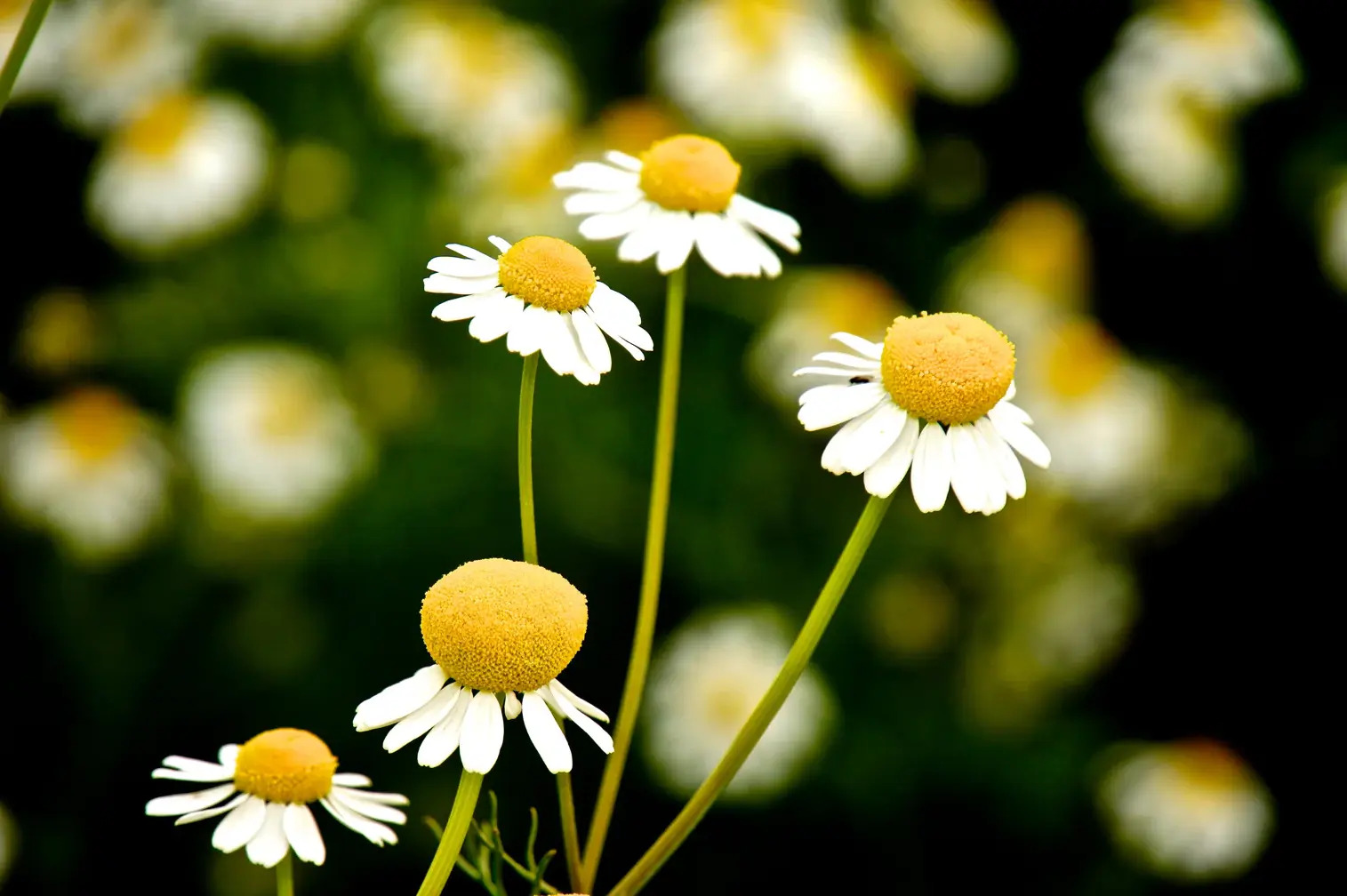
Chamomile is more than just a pretty flower. This ancient herb has been used for centuries in teas, tinctures, and even skincare products. But what makes chamomile so special? Chamomile is known for its calming effects, making it a popular choice for those seeking a natural remedy for stress and insomnia. Beyond its soothing properties, chamomile boasts anti-inflammatory and antioxidant benefits. Did you know that chamomile can also aid digestion and boost your immune system? Whether you're sipping on a warm cup of chamomile tea or applying chamomile-infused lotion, this versatile herb offers a range of health benefits. Ready to learn more? Here are 28 fascinating facts about chamomile that will deepen your appreciation for this remarkable plant.
Key Takeaways:
- Chamomile is more than just a pretty flower; it offers health benefits, skincare uses, and even culinary applications. It's a versatile herb that can enhance your well-being in various ways.
- Growing chamomile is easy and accessible for all levels of gardeners. Whether you're a beginner or a seasoned pro, you can enjoy the beauty and benefits of this lovely herb in your own garden.
What is Chamomile?
Chamomile is a popular herb known for its calming properties. Often used in teas, it has a rich history and various uses. Let's explore some fascinating facts about this versatile plant.
- Chamomile belongs to the Asteraceae family, which includes daisies and sunflowers.
- There are two main types: German chamomile (Matricaria chamomilla) and Roman chamomile (Chamaemelum nobile).
- Ancient Egyptians revered chamomile for its healing properties and used it in rituals.
- The name "chamomile" comes from the Greek words "chamai" (ground) and "melon" (apple), referring to its apple-like scent.
Health Benefits of Chamomile
Chamomile is not just a pretty flower; it offers numerous health benefits. Here are some reasons why people love this herb.
- Chamomile tea is famous for its ability to promote relaxation and improve sleep quality.
- It contains antioxidants like apigenin, which may help reduce inflammation.
- Drinking chamomile tea can soothe digestive issues, such as indigestion and gas.
- Chamomile has mild antibacterial properties, making it useful for minor skin irritations.
- Some studies suggest chamomile may help lower blood sugar levels in people with diabetes.
Chamomile in Beauty and Skincare
Chamomile isn't just for drinking; it also has applications in beauty and skincare. Discover how this herb can enhance your beauty routine.
- Chamomile extract is often used in skincare products for its anti-inflammatory and calming effects.
- It can help reduce redness and irritation in sensitive skin.
- Chamomile-infused products may aid in treating acne due to their antibacterial properties.
- The herb is known to lighten hair naturally when used as a rinse.
- Chamomile oil can be added to bathwater for a relaxing soak that soothes the skin.
Chamomile in Culinary Uses
Chamomile isn't limited to teas and beauty products; it also has culinary applications. Let's see how this herb can be used in the kitchen.
- Chamomile flowers can be used to make flavorful syrups for cocktails and desserts.
- It can be infused into honey for a unique twist on a classic sweetener.
- Chamomile adds a delicate flavor to baked goods like cookies and cakes.
- The herb can be used to make chamomile butter, perfect for spreading on toast or scones.
- Chamomile is sometimes used in savory dishes, such as soups and stews, for a subtle floral note.
Growing Chamomile
Interested in growing your own chamomile? It's easier than you might think. Here are some tips for cultivating this lovely herb.
- Chamomile prefers well-drained soil and full sun but can tolerate partial shade.
- It can be grown from seeds or transplants, making it accessible for gardeners of all levels.
- German chamomile is an annual, while Roman chamomile is a perennial.
- The plants attract beneficial insects like bees and ladybugs to your garden.
- Harvest chamomile flowers when they are fully open for the best flavor and potency.
Fun Facts About Chamomile
Chamomile has some quirky and interesting aspects that make it even more intriguing. Check out these fun facts.
- Chamomile was used as a strewing herb in medieval times to freshen the air in homes.
- The herb has been used in traditional medicine for over 2,000 years.
- Chamomile is often used in aromatherapy for its calming scent.
- Some people believe chamomile can bring good luck and is used in various folk traditions.
Chamomile: A Timeless Treasure
Chamomile's benefits are truly impressive. From soothing teas to skincare wonders, this humble flower has been cherished for centuries. Its anti-inflammatory and antioxidant properties make it a go-to for many health remedies. Whether you're looking to calm your nerves, improve digestion, or enhance your sleep, chamomile's got your back.
Its versatility extends beyond health. Chamomile can be found in cosmetics, aromatherapy, and even culinary dishes. This little flower packs a punch in so many areas of our lives.
Next time you sip on a cup of chamomile tea or apply a chamomile-infused lotion, remember the rich history and numerous benefits it brings. Embrace the power of chamomile and let it add a touch of tranquility to your daily routine.
Frequently Asked Questions
Was this page helpful?
Our commitment to delivering trustworthy and engaging content is at the heart of what we do. Each fact on our site is contributed by real users like you, bringing a wealth of diverse insights and information. To ensure the highest standards of accuracy and reliability, our dedicated editors meticulously review each submission. This process guarantees that the facts we share are not only fascinating but also credible. Trust in our commitment to quality and authenticity as you explore and learn with us.
